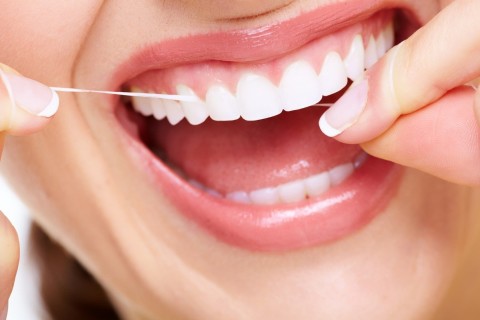Everyone wants a lovely white smile, but most people wonder uneasily if they are sacrificing the health of their teeth for appearances whenever they indulge in a tooth-whitening procedure.
A professional whitening procedure done by experienced dentists in Raleigh, NC and elsewhere uses a strong hydrogen peroxide solution to bleach the teeth. At-home kits use similar chemicals, but in a less concentrated form. Tooth bleaching procedures are well-known to produce temporary sensitivity of the teeth, and if any of the chemicals get on the gums, they can cause irritation. Over-the-counter at-home kits are much more likely to irritate the gums than procedures done by a dentist. Both side effects go away after a few days.
The American Dental Association (ADA) has issued a statement indicating that tooth whitening procedures are believed to be safe. Both ADA-approved home kits and professional whitening services that are performed by a dentist are included in this statement. However, the ADA goes on to state that the safety of repeated use of at-home kits is unknown, and suggests that patients talk to their dentist about tooth whitening before attempting it at home. A dentist in Raleigh, NC like one at Gover and Gover Dentistry will evaluate patients’ individual conditions and recommend an appropriate treatment. Some types of tooth stains do not respond to tooth whitening, and some types of dental restorations should not be exposed to tooth whitening agents.
A review of the evidence on the safety of tooth whitening was published in 2011. Demarco et al. reported that, under extreme conditions in a laboratory setting, tooth enamel could be eroded by bleaching agents. However, in real-life settings, tooth whitening procedures were found to soften tooth enamel, but only for around one week after the procedure. During the week following a tooth whitening, patients should avoid using abrasive toothpastes and aggressive tooth-cleaning procedures. After the week is up, the teeth enamel essentially returns to normal, with no permanent damage.
So patients don’t need to worry that they are giving up good tooth health in exchange for whiter teeth. A professional or at-home tooth whitening may produce temporary sensitivity and enamel softening, but these effects quickly go away and do not cause any long-term tooth damage.
Sources:
(Statement on the Safety and Effectiveness of Tooth Whitening Products, ada.org)
(Erosion and abrasion on dental structures undergoing at-home bleaching, publ.med.gov)

